Speaking Chalk: Bringing Spoken English to the Students Who Really Need It.
A dedicated group of volunteers devotes time to help children learn the nuances of Spoken English.
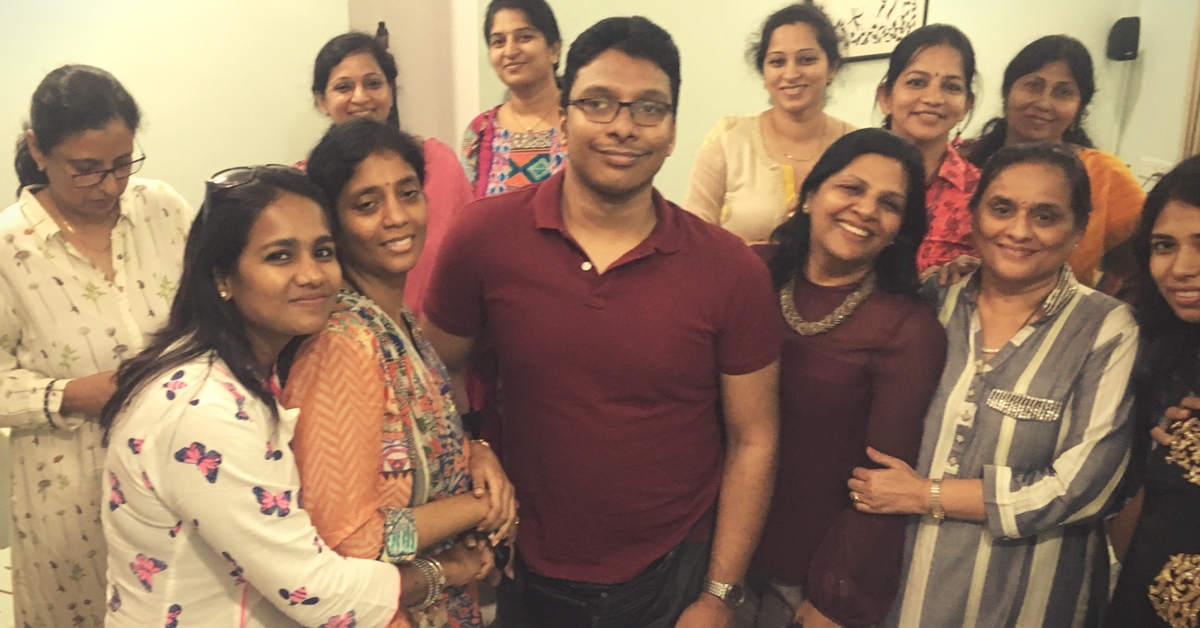
It is one thing to understand the English language, but speaking it fluently is an entirely different matter. Effortless English-speaking skills, beyond the scope of academics, are still beyond the reach of many. This is especially true for students who are exposed to the language only through their curriculum. English is not the primary language of communication at home, and although these children study in English-medium schools, they have inferior speaking and writing skills.
The students at A.U. English Medium School, Visakhapatnam, in a nondescript lane opposite the Andhra University out-gate, were struggling with spoken English. The English taught in school is exclusively syllabus and exam-oriented. Teachers, in their hurry to finish the curriculum and adhere to various schedules, found themselves unable to impart knowledge with regards to the finer aspects of the English language.
Sandhya Venugopal Godey started visiting the A.U. English Medium School, to help the children grasp the nuances of English language. She tried to get them to work on Sudoku puzzles, crossword games and word mazes.
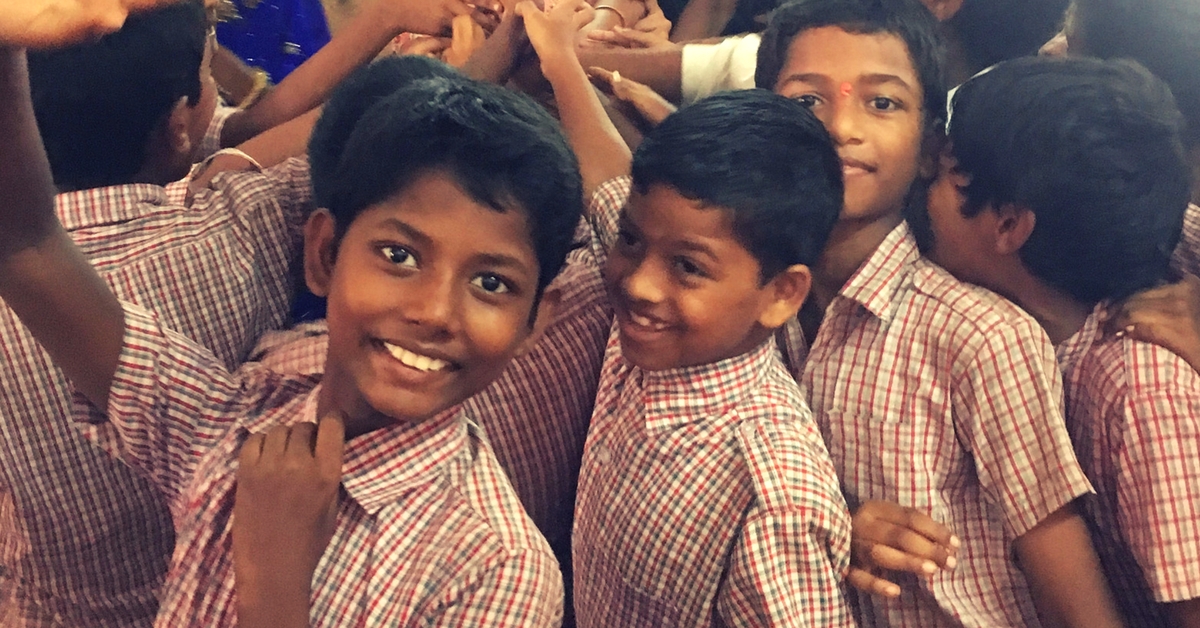
Upon doing this, she realised that it was nearly impossible for them to solve problems because they needed to understand the language better, i.e., in a more communicative fashion. After interacting with the principal and the school correspondent, she visited the older kids in Class 9 and observed them.
She decided that it is essential to correct children at a young age, so they do not make mistakes when they are older. The hunt then began for more volunteers. They convinced the school to give them a dedicated hour during the week, so Thursday was appointed as the designated day.
Each morning, for an hour, from 11:30 a.m to 12:30 p.m the Sandhya and her group would spend time with children from classes 1 to 5. The afternoon saw Sandhya conduct sessions with classes 6 to 9, with two sections in each class. They tried pooling in kids from different sections into one unit, but there were far too many students for one volunteer to teach them effectively.
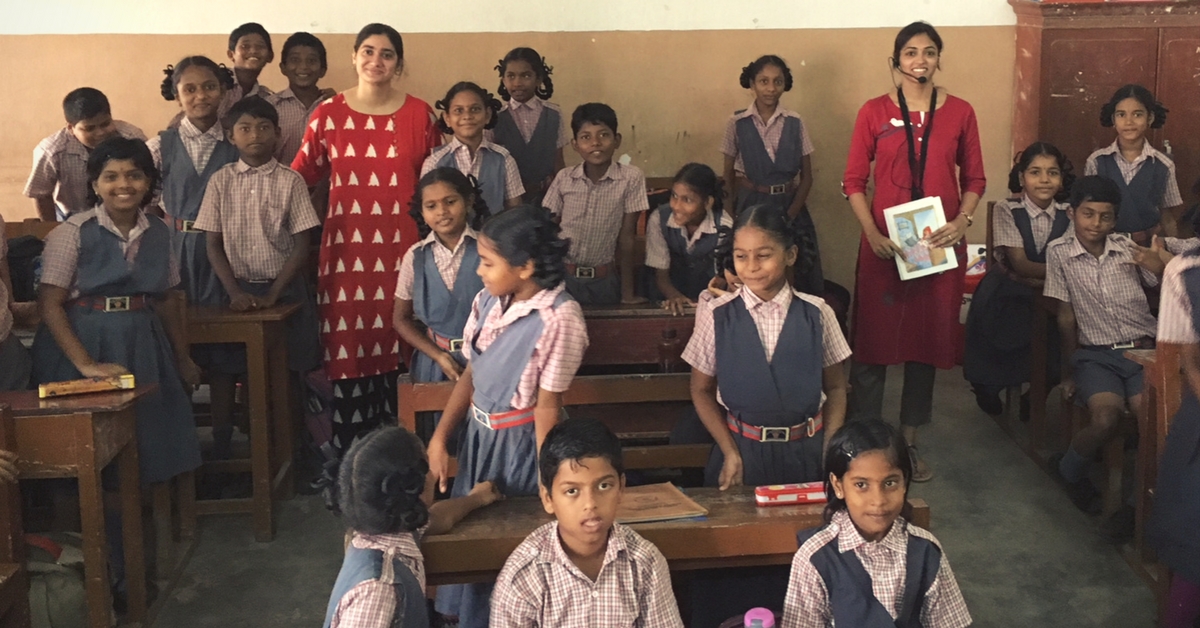
Sandhya then started a Facebook page in October 2016, and after some brainstorming decided to call it Speaking Chalk. The objective of Speaking Chalk was to equip students with suitable spoken English skills. It was difficult. No one was a trained teacher, and covering all the classes all the time became difficult. It was then that a person who teaches GSE classes decided to help Sandhya and her team come up with a curriculum of sorts. She pooled in worksheets so students could get more practice.
Sandhya then conceptualised a three-week course, for children from classes 6 to 9. Conducted during the summer break, this course allowed for a maximum of 50 children per session, and each student was charged ₹100. What followed was a mixed bag of entertainment and education, with interactive games, like coming up with sentences. At the end of 3 weeks, Sandhya wanted to have a session to see how the children were progressing. The rule was simple. Everyone had to participate.
The response was favourable, with everyone coming forward with a song or a couple of speeches. Sandhya was pleased to see that the kids conducted the program themselves, without any help from her or the team.
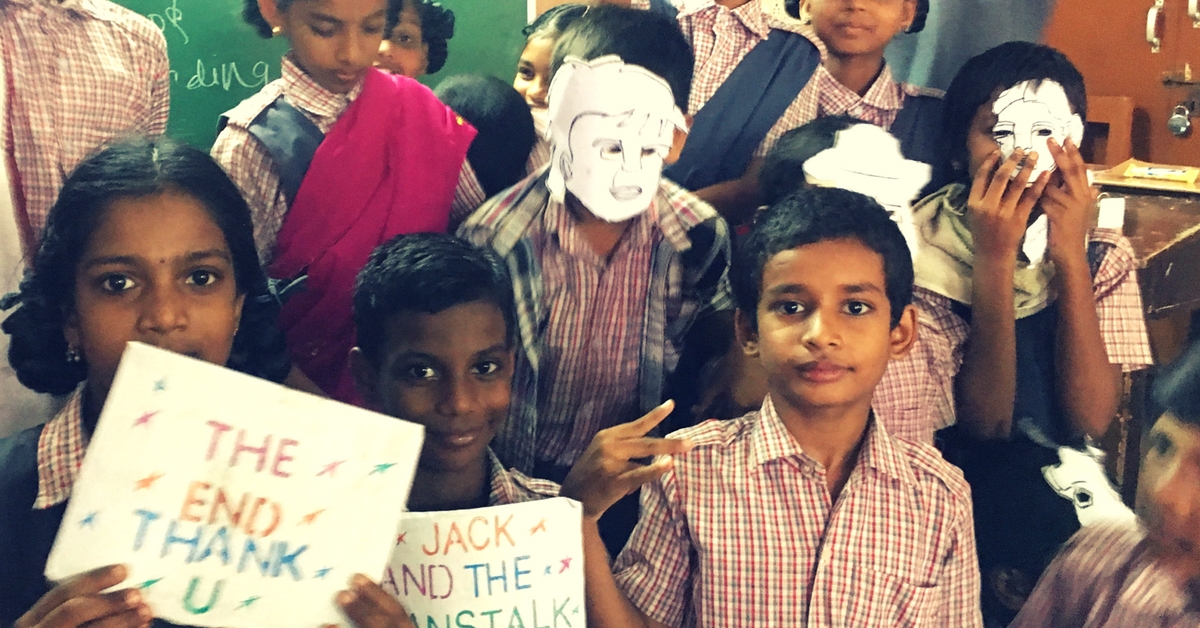
Speaking Chalk requires more volunteers to carry out its operations efficiently. Sandhya recounts an incident, in which she was teaching a group of students in class 9. The girls were very quiet, but the boys were noisy. Sandhya politely asked the students not to make a noise, as others were trying to learn. If they weren’t inclined to learn, they could leave. This happened twice. That is when Sandhya introduced a scholarship scheme, which got the students interested.
Slowly, the Spelling Chalk team began to see fruits of their labour, when the children reached the second round of a spelling bee, with scores on par with students from some reputed schools.
Sandhya and her team of 40 volunteers always remind the children to never develop a fear of making mistakes. “If you don’t make mistakes, you will never learn”, is what Sandhya often repeats in her sessions. The children are happy and don’t feel intimidated because there are no marks, no question of passing or failing, no discriminating between good students and weak students, and no ranking system. It is a free-for-all model of learning. The scholarship fund came to ₹2 Lakh, after generous contributions from good samaritans.
You may also like: This Lady Is Leading Underprivileged Kids Towards Quality Education In Her Living Room.
Speaking Chalk did not have a plan when they started. Sandhya maintains that the objective above all, is to bring Speaking Chalk to every school, and with more volunteers, this is possible. She and her team are currently working with the students of the A.U English Medium School from class 1 to 9. Sandhya hopes to replicate her efforts in other schools as well.
Sandhya also approaches potential volunteers through the Just One Hour concept, where she urges them to contribute 1 hour of their week to help the students. Additionally, a crowd-funded contribution has resulted in a library for the school, to give students access to books outside those in their school curriculum.
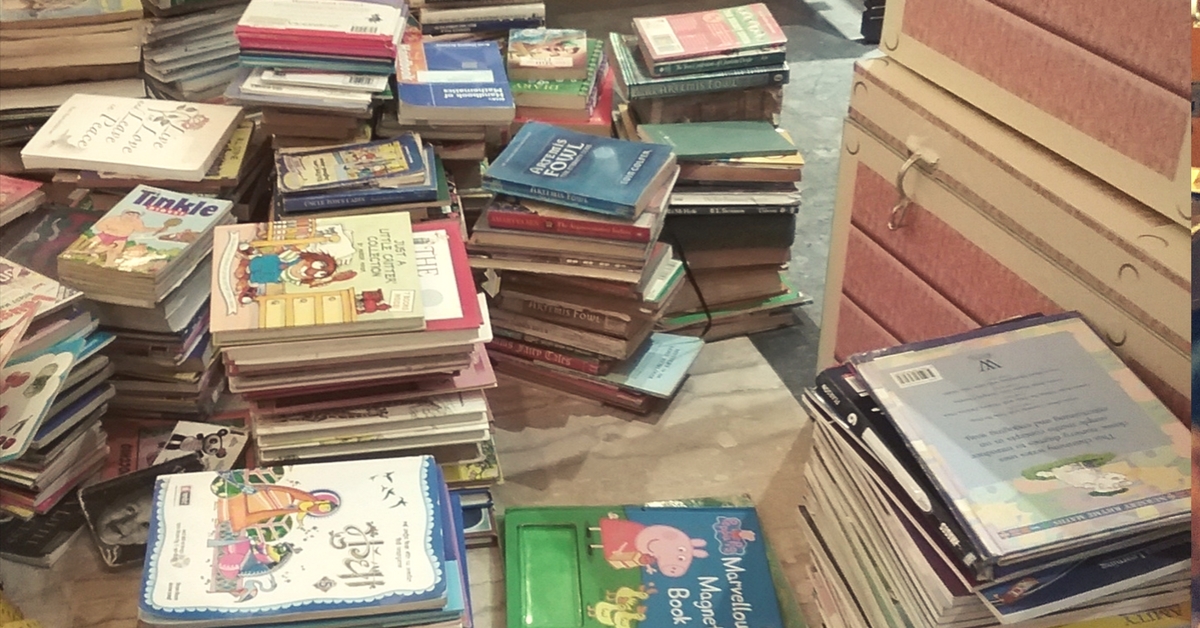
Speaking Chalk uses various methods—games, drama, word-play, newspapers, competitions and more to make students feel comfortable with themselves, as well as the language, to use it as a medium of communication. Progress is slow, yet sure. This, according to Sandhya is what keeps the group motivated to keep moving forward with hope, that one day their efforts will bear fruit.
Like this story? Or have something to share? Write to us: [email protected], or connect with us on Facebook and Twitter.
NEW: Click here to get positive news on WhatsApp!
If you found our stories insightful, informative, or even just enjoyable, we invite you to consider making a voluntary payment to support the work we do at The Better India. Your contribution helps us continue producing quality content that educates, inspires, and drives positive change.
Choose one of the payment options below for your contribution-
By paying for the stories you value, you directly contribute to sustaining our efforts focused on making a difference in the world. Together, let's ensure that impactful stories continue to be told and shared, enriching lives and communities alike.
Thank you for your support. Here are some frequently asked questions you might find helpful to know why you are contributing?


This story made me
-
97
-
121
-
89
-
167














